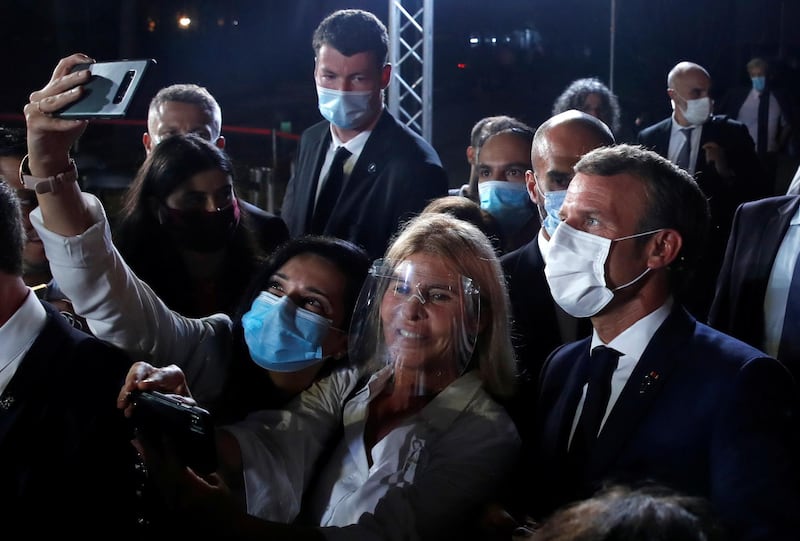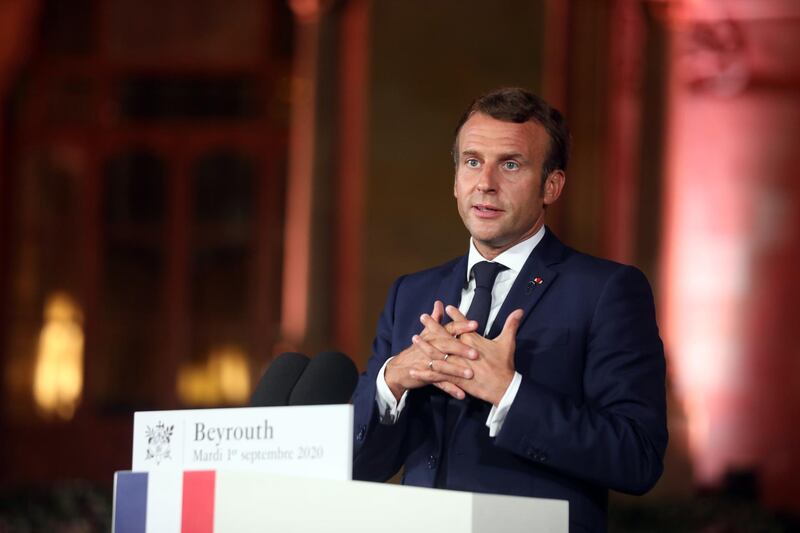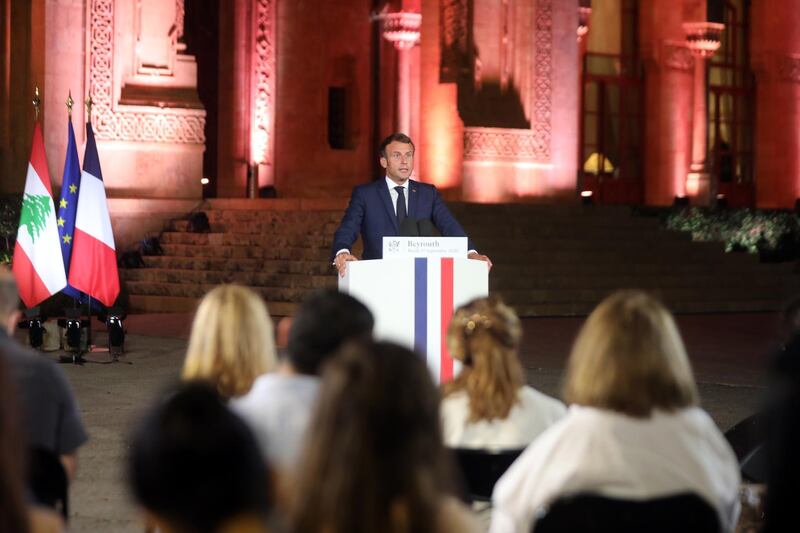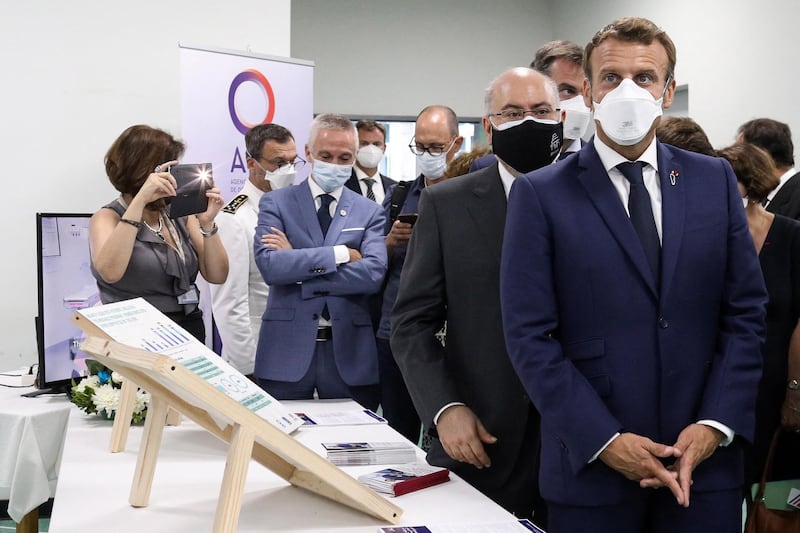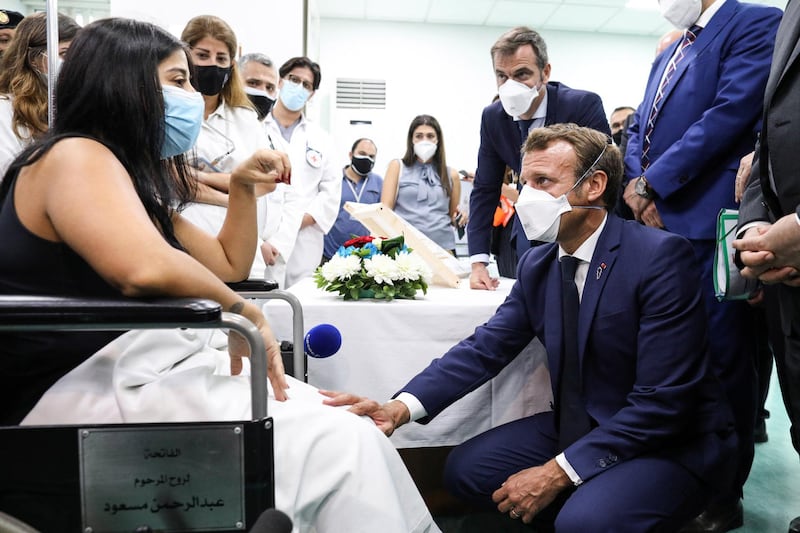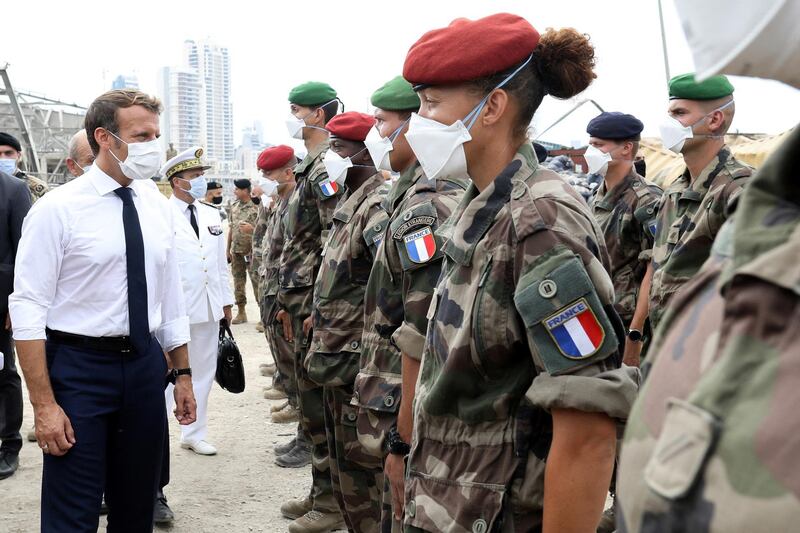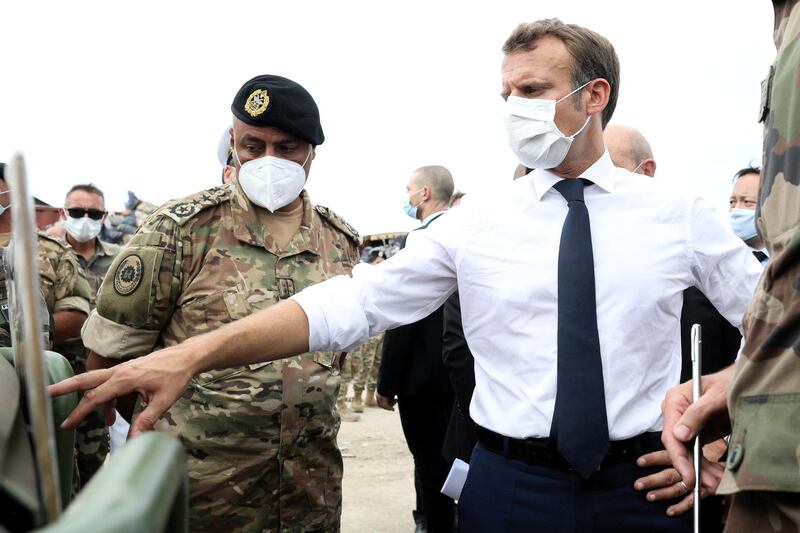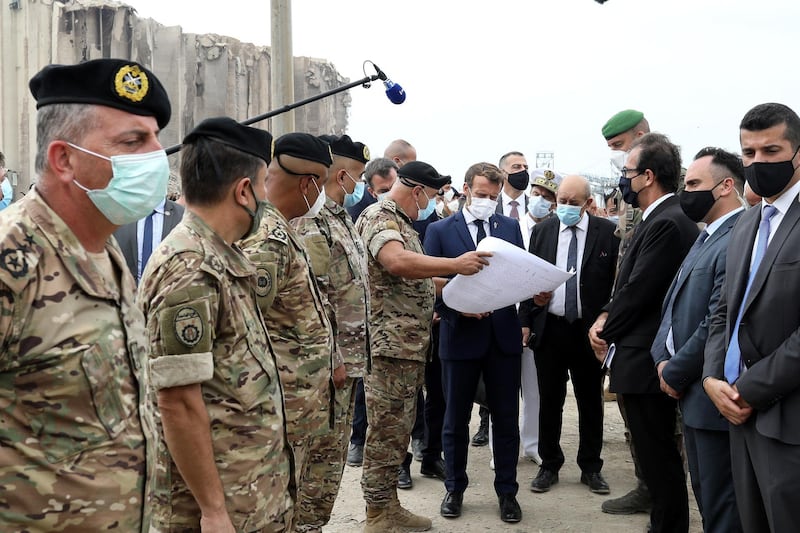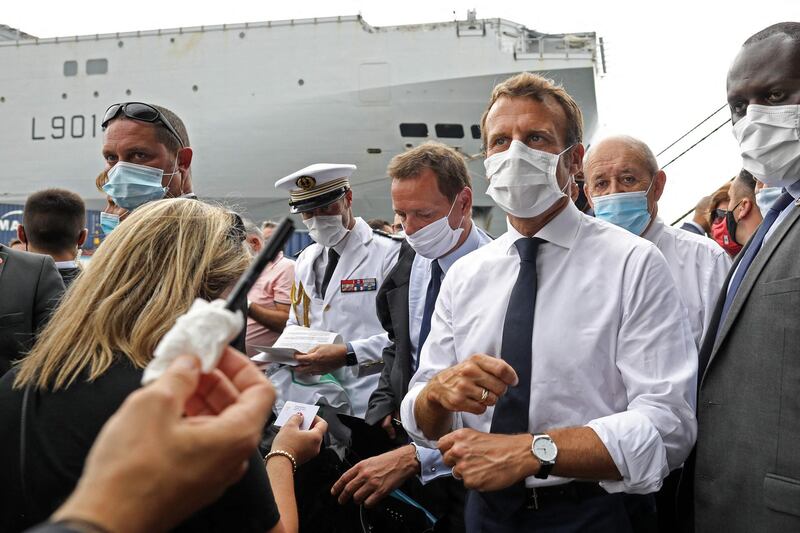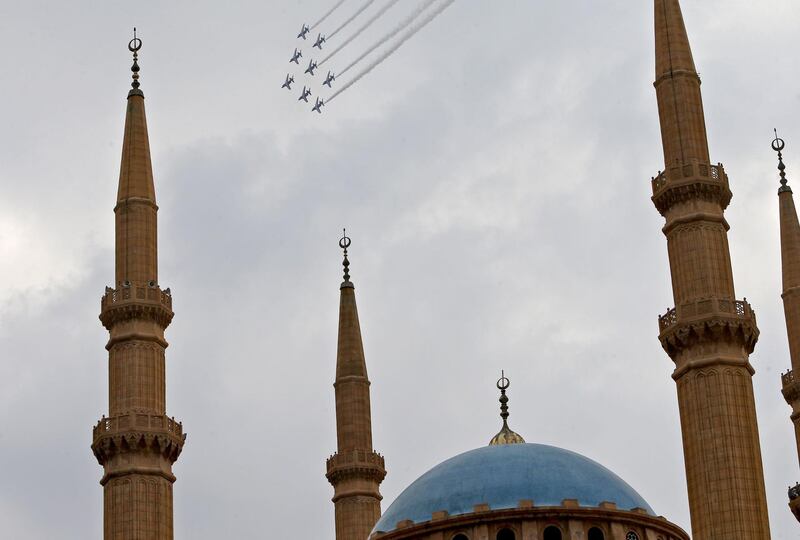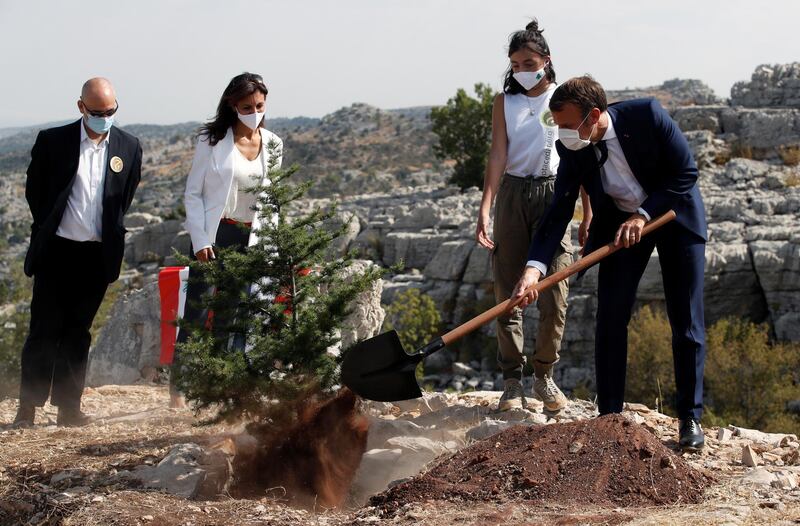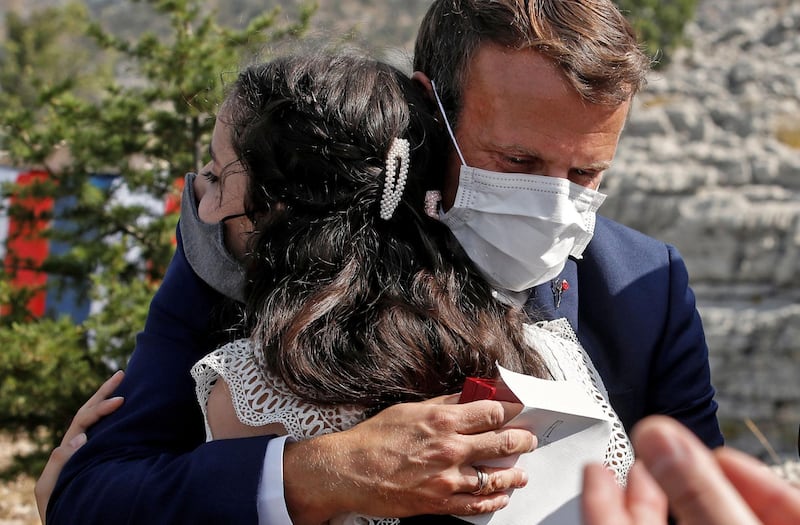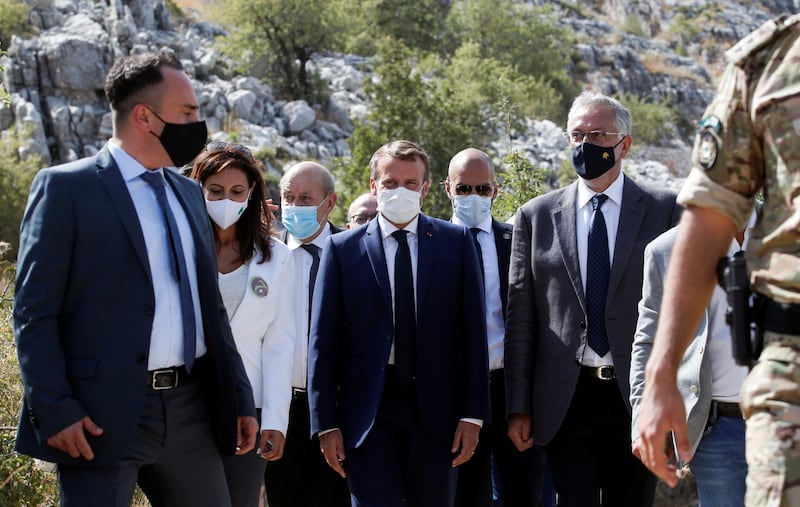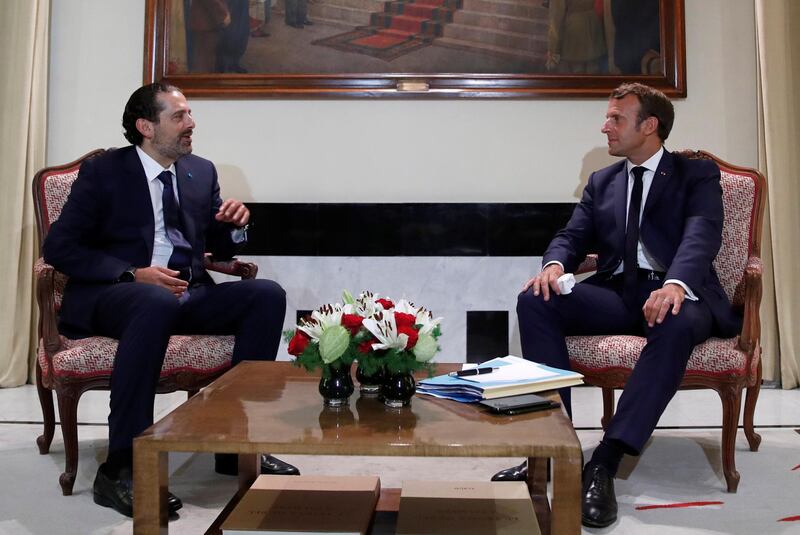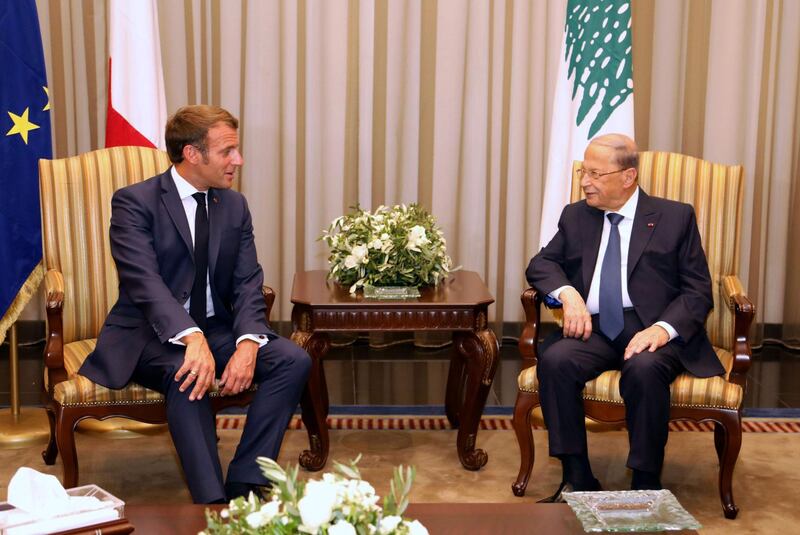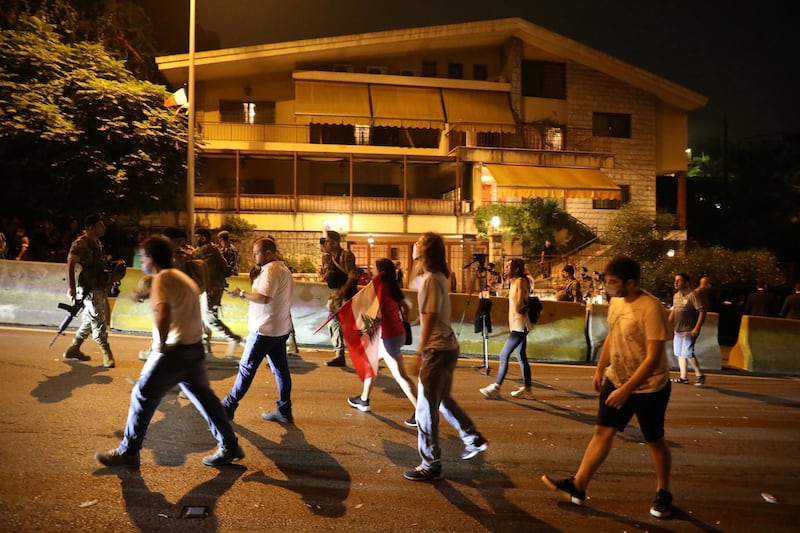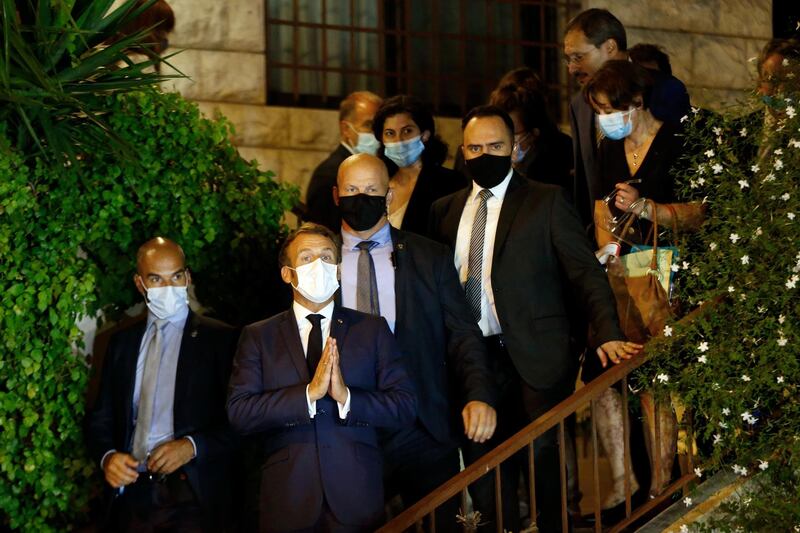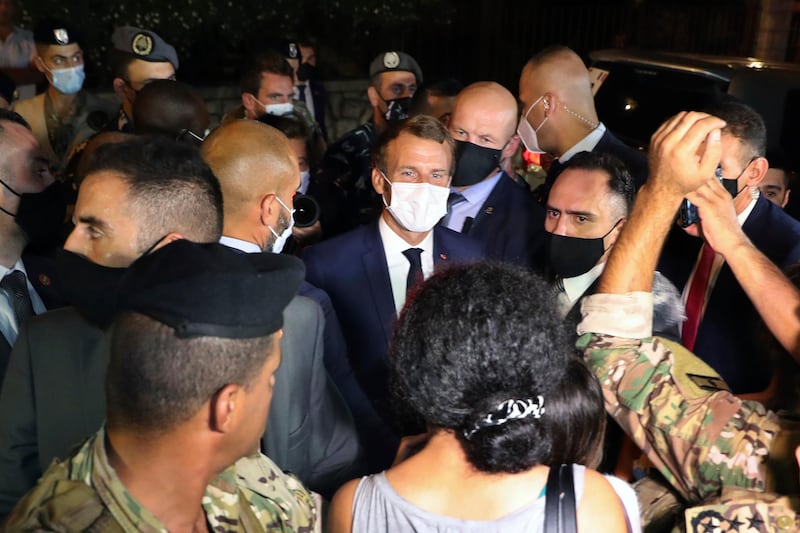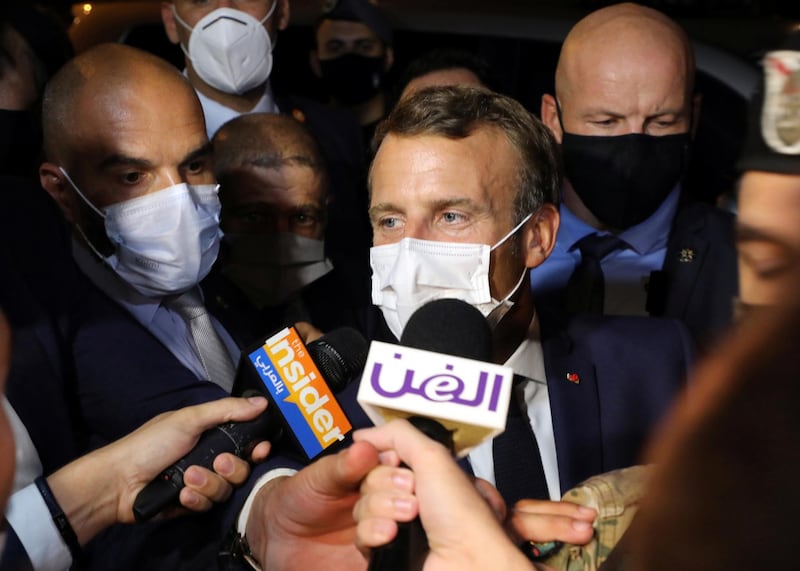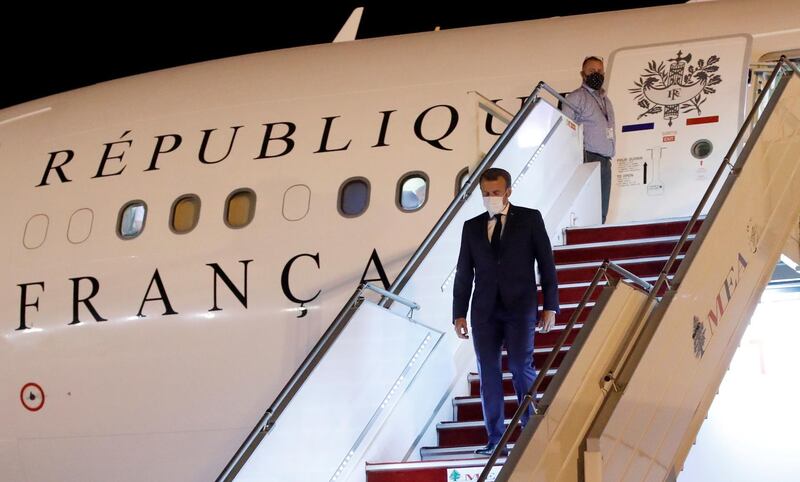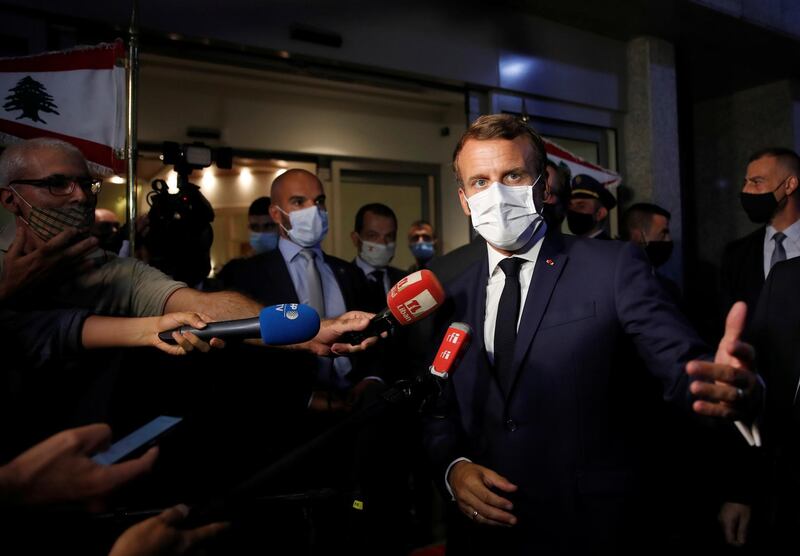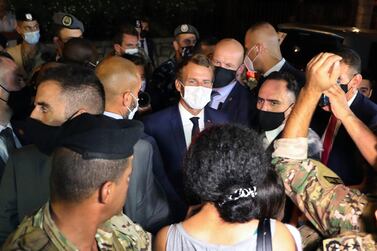French President Emanuel Macron sought on Tuesday to spur Lebanese politicians to reform their failing government by holding up the prospect of international funding to rescue the ailing economy.
Emphasising France's historic ties with Lebanon, Mr Macron said that Paris is prepared to host another international conference in October to rally support for Lebanon, two years after a similar conference in the European capital yielded minimal impact.
"I am ready to host it in Paris," Mr Macron, who is in Beirut to meet the pillars of the political class, told Politico.
He said he wants to see early parliamentary elections in Lebanon within six to 12 months in an apparent nod to the country's protest movement.
It was the second trip by Mr Macron to the Lebanese capital since he visited the city a day after a huge explosion at Beirut Port on August 4 killed at least 190 people.
Lebanon was already reeling from a financial meltdown before the explosion.
The government defaulted on its foreign debt in March and bans on foreign currency withdrawals were imposed to halt a run on the banks after the currency began tumbling in value last year.
Popular anger at officials’ inaction over the storage of ammonium nitrate that resulted in the devastating explosion led to the resignation last month of the government.
The suggested donor conference comes just two years after the international community pledged $11 billion in soft loans and grants for Lebanon at the so-called Cedar Conference in Paris in 2018.
The meeting was in support of a plan put forward by then-prime minister Saad Hariri to rebuild crumbling infrastructure and end daily power blackouts.
But as consecutive governments have failed to enact the reforms required to unlock the aid, none of the money has yet been handed over.
Mr Macron floated last month a vague political initiative aimed at coalescing the Lebanese political class to accept the stalled reform plan.
France has now tacitly supported the new prime minister designate, Mustapha Adib, formerly Lebanon's ambassador to Germany, who has secured backing from parties across the spectrum despite mass nationwide protests calling for the overhaul of the entire political class.
Mr Adib is a protege of former prime minister Najib Al Mikati, a billionaire businessman with a somewhat pro-Syrian track record and ties to Damascus.
Objections by Hezbollah played a major role in ending chances for Nawaf Salam, an international judge in the Hague and a seasoned diplomat, to become the new prime minister.
Under Lebanon’s sectarian arrangements, the prime minister has to be Sunni, the president Maronite Christian and the Speaker Shiite.
Lebanese analyst Khaled Kassar told The National that Mr Macron had put pressure on Mr Hariri and other Sunni figures to accept Mr Adib as the only way to prevent Hezbollah from blocking the French initiative, although the appointment has met with a negative response from many Lebanese who feel he is part of the same political class that has bankrupted the country.
Mr Hariri and other Sunni players also feared that if they resisted Mr Adib "Hezbollah will stir trouble and blood will be shed in the streets," Mr Kassar said.
"They used the same justification we have been hearing for years, which is the fear of Hezbollah. Look where this has led Lebanon," Mr Kassar said.
He said as long as Mr Macron does not find ways to challenge the sway Hezbollah holds on the Lebanese state, it will be difficult to get the United States and Arabian Gulf countries on board with the French initiative.
"No one will be fooled if Lebanon ends with another cabinet comprised of lambs," Mr Kassar said.
